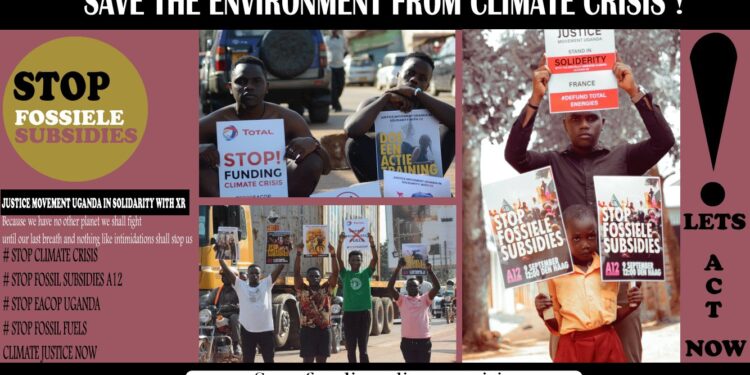In a startling turn of events, environmental activists are sounding the alarm over the ambitious East Africa Crude Oil Pipeline (EACOP) project, stretching a staggering 1,400 kilometers from Uganda’s Lake Albert to Tanzania’s Indian Ocean coast.
This colossal endeavor, backed primarily by France’s TotalEnergies, with significant stakes held by Chinese financiers Sinosure and the state-owned Export Import Bank of China, has ignited a firestorm of concern.
Thousands of families find themselves displaced, their lives upended, as the pipeline’s voracious appetite for space threatens both wildlife habitats and cherished species like elephants and chimpanzees.
As the project forges ahead, carbon emissions swell, casting a dark shadow over efforts to combat climate change.
Diana Nabiruma, a resolute spokesperson for the Africa Institute for Energy Governance, minced no words in her rebuke of China’s apparent support for EACOP.
“We take issue with the reports that China is keen to fund the EACOP project despite our documentation of the environmental and social damages of this investment,” she declared, her voice echoing the concerns of the #StopEACOP campaign.
France’s TotalEnergies, holding a commanding 62 percent stake, stands at the helm of this multibillion-dollar venture, flanked by the Uganda National Oil Company, the Tanzania Petroleum Development Corporation, and the China National Offshore Oil Corporation. The project’s debt equity ratio, teetering at 40:60, leaves no room for financial missteps.
Irene Batebe, unyielding in her resolve, assured that Uganda’s Ministry of Energy and Mineral Development is on the brink of finalizing credit arrangements with Chinese financiers, particularly Sinosure, who are poised to be pivotal contributors to the project’s mounting debt.
Ugandan President Yoweri Museveni’s contentious stance, applauding China’s investment in energy infrastructure while berating the West for their green energy push, underscores the geopolitical tensions at play.
Meanwhile, environmentalists, like the steadfast Okulony, decry the oft-repeated narrative of local communities benefiting from such undertakings, arguing instead that they languish in the throes of impoverishment.
As bulldozers carve their way through once-thriving communities, farms and livelihoods are sacrificed at the altar of progress. Activists warn that the pipeline’s looming presence imperils vital fresh water sources, upon which millions depend for their very survival.
In the face of mounting opposition, TotalEnergies offers assurances, pledging that once constructed, the pipeline will be discreetly buried, allowing nature to reclaim its domain. Yet, the chorus of dissent, echoed by organizations both local and international, reverberates loudly.
Greenpeace and Human Rights Watch, among others, fervently declare that the EACOP project heralds a cataclysmic era of social and environmental upheaval.
In this David-versus-Goliath struggle, Uganda’s oil pipeline emerges as a crucible, where the interests of nations and the fervent calls of environmentalists clash in a tumultuous crescendo of controversy.
The stakes are high, and the world watches with bated breath as this colossal endeavor unfolds.
Do you have a story in your community or an opinion to share with us: Email us at editorial@watchdoguganda.com










